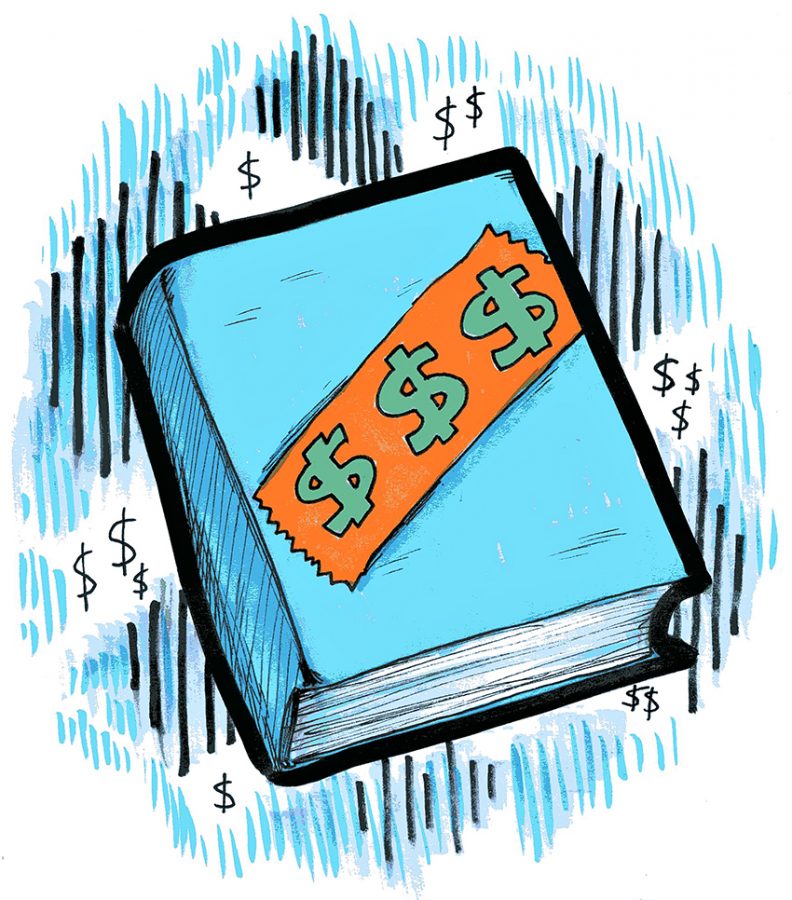Overcome with frustration, a student thumbed through her red ink-laced test, while government professor Shannon O’Brien explained the questions she missed were in the required textbook. But her student hadn’t purchased the textbook. It was too expensive.
With textbooks prices increasing 82 percent in the last decade, students may find themselves facing difficult decisions: shell out money or face academic consequences.
O’Brien said her conversation with the student nearly 13 years ago shaped how she researches prospective textbooks.
“I have noticed over the last 10 years or so that students are increasingly willing to not buy a book if the price is too high,” O’Brien said. “So, I figure I can either bang my head on the wall in frustration or accept that a certain percentage of my classes will [act] this way. So I’ve adapted my classes to minimize this behavior.”
In a recent survey of 2,000 students conducted by the U.S. Public Interest Research Group, more than 65 percent said they had not purchased a textbook at some point in their college career because of cost.
Other professors remain unaware of the costs of the textbooks they’re assigning. Chandler Forsythe, an international relations sophomore, said his professor was surprised at the cost of the German textbook he required for the class.
“On the first day of class, [my professor] found out that the book he usually assigns had risen in price from $90 to $200,” Forsythe said. “He had no clue why. Lucky for me, purchasing textbooks is not an issue, but I know it is for a lot of students.”
Ethan Senak, a higher education associate at the USPIRG, said in addition to rentals and downloads, a main cause of the textbook problem is the control publishing companies have in regulating textbook prices.
“[F]ive companies …dominate upwards of 85 percent of the market,” Senak said. “There’s less competition now.”
After buying unnecessary textbooks in the past, Plan II freshman Cade Stone said he changed his buying strategy.
“I ended up spending $120 for [a textbook] and used it pretty minimally,” Stone said. “This semester, if a professor says we absolutely must buy the book, then I’ll spend the money. But otherwise, I’ll wait.”
This tactic could be potentially harmful to students.
Biology freshman Kayla Blackmon said stalling to buy a textbook last semester jeopardized her grade.
“I waited to purchase an expensive science textbook, wanting to see first if it would be necessary to getting a good grade,” Blackmon said. “My professor assigned homework the second day of class out of the book, and we had a test the next week. Luckily, I found the textbook in one of the libraries on campus, but it could have been costly.”
The risk of a student not completing their required reading is why Professor O’Brien said she hesitates to assign certain books. She said she believes other professors should not only assign their students the best books but ones students can and will buy.
“If the best book is expensive, many professors will continue to use it because they are committed first and foremost to the educational aspects of the class,” O’Brien said. “I would just rather have students read one book thoroughly than have them not buy anything at all and come to me asking why they did not do well on the test.”




















